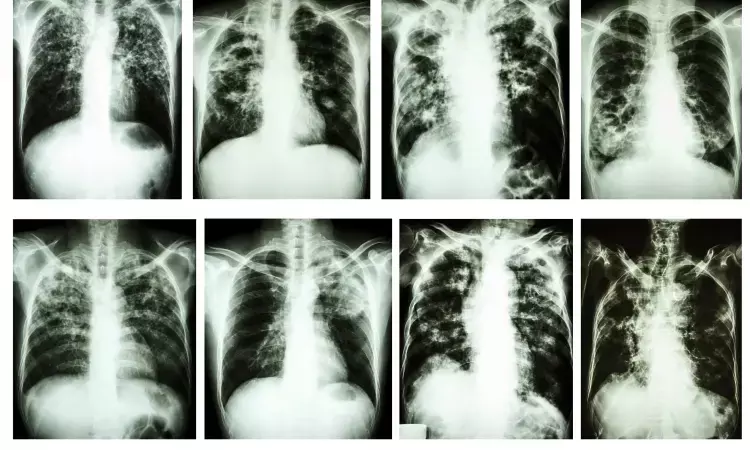- Home
- Medical news & Guidelines
- Anesthesiology
- Cardiology and CTVS
- Critical Care
- Dentistry
- Dermatology
- Diabetes and Endocrinology
- ENT
- Gastroenterology
- Medicine
- Nephrology
- Neurology
- Obstretics-Gynaecology
- Oncology
- Ophthalmology
- Orthopaedics
- Pediatrics-Neonatology
- Psychiatry
- Pulmonology
- Radiology
- Surgery
- Urology
- Laboratory Medicine
- Diet
- Nursing
- Paramedical
- Physiotherapy
- Health news
- Fact Check
- Bone Health Fact Check
- Brain Health Fact Check
- Cancer Related Fact Check
- Child Care Fact Check
- Dental and oral health fact check
- Diabetes and metabolic health fact check
- Diet and Nutrition Fact Check
- Eye and ENT Care Fact Check
- Fitness fact check
- Gut health fact check
- Heart health fact check
- Kidney health fact check
- Medical education fact check
- Men's health fact check
- Respiratory fact check
- Skin and hair care fact check
- Vaccine and Immunization fact check
- Women's health fact check
- AYUSH
- State News
- Andaman and Nicobar Islands
- Andhra Pradesh
- Arunachal Pradesh
- Assam
- Bihar
- Chandigarh
- Chattisgarh
- Dadra and Nagar Haveli
- Daman and Diu
- Delhi
- Goa
- Gujarat
- Haryana
- Himachal Pradesh
- Jammu & Kashmir
- Jharkhand
- Karnataka
- Kerala
- Ladakh
- Lakshadweep
- Madhya Pradesh
- Maharashtra
- Manipur
- Meghalaya
- Mizoram
- Nagaland
- Odisha
- Puducherry
- Punjab
- Rajasthan
- Sikkim
- Tamil Nadu
- Telangana
- Tripura
- Uttar Pradesh
- Uttrakhand
- West Bengal
- Medical Education
- Industry
Lower dose of Pirfenidone as effective as full dose for reducing disease progression in IPF

Korea: A study published in the Korean Journal of Internal Medicine has concluded that the pirfenidone effect for reducing the progression of idiopathic pulmonary fibrosis persists even at a lower dose in patients who cannot tolerate a standard full dose.
Idiopathic pulmonary fibrosis (IPF) is a chronic, progressive disease. The prognosis of the disease is extremely poor, with a median survival duration of 3 years from diagnosis.
Pirfenidone is an antifibrotic drug. As shown in large trials, Pirfenidone reduces the rate of decline in FVC and prolongs progression-free survival. The important consideration here is that it has effectiveness, slows down the IPF progression, and has adverse events.
The study points include the following:
- The study included 338 patients treated with Pirfenidone (July 2012 - March 2018).
- The researchers investigated demographics, pulmonary function, mortality, and adverse events.
- Comparing Forced Vital Capacity (FVC) and DLCO, diffusing capacity of the lungs for carbon monoxide changes before and after treatment with Pirfenidone was + 2.45 % and + 3.79 %. With standard and lower doses, individual values were + 2.13 %, + 3.65 % and, + 3.17 %, + 4.57 %, respectively.
- The total adverse event reported was 81.7 %.
- Nearly 24.6 % discontinued the treatment due to adverse events.
In our study, there was no difference in the frequency of adverse events between the dose groups, contrary to our expectation that the non-standard dose group would have more adverse events, they said.
This study’s limitations include a retrospective cohort study small number of patients in the standard dose group.
Further reading:
Hwang H, Lee JK, Choi SM, Lee YJ, Cho YJ, Yoon HI, Lee JH, Lee CT, Kim YW, Park JS. Efficacy of lower dose pirfenidone for idiopathic pulmonary fibrosis in real practice: a retrospective cohort study. Korean J Intern Med. 2022 Mar;37(2):366-376. doi: 10.3904/kjim.2020.559
BDS, MDS in Periodontics and Implantology
Dr. Aditi Yadav is a BDS, MDS in Periodontics and Implantology. She has a clinical experience of 5 years as a laser dental surgeon. She also has a Diploma in clinical research and pharmacovigilance and is a Certified data scientist. She is currently working as a content developer in e-health services. Dr. Yadav has a keen interest in Medical Journalism and is actively involved in Medical Research writing.
Dr Kamal Kant Kohli-MBBS, DTCD- a chest specialist with more than 30 years of practice and a flair for writing clinical articles, Dr Kamal Kant Kohli joined Medical Dialogues as a Chief Editor of Medical News. Besides writing articles, as an editor, he proofreads and verifies all the medical content published on Medical Dialogues including those coming from journals, studies,medical conferences,guidelines etc. Email: drkohli@medicaldialogues.in. Contact no. 011-43720751


